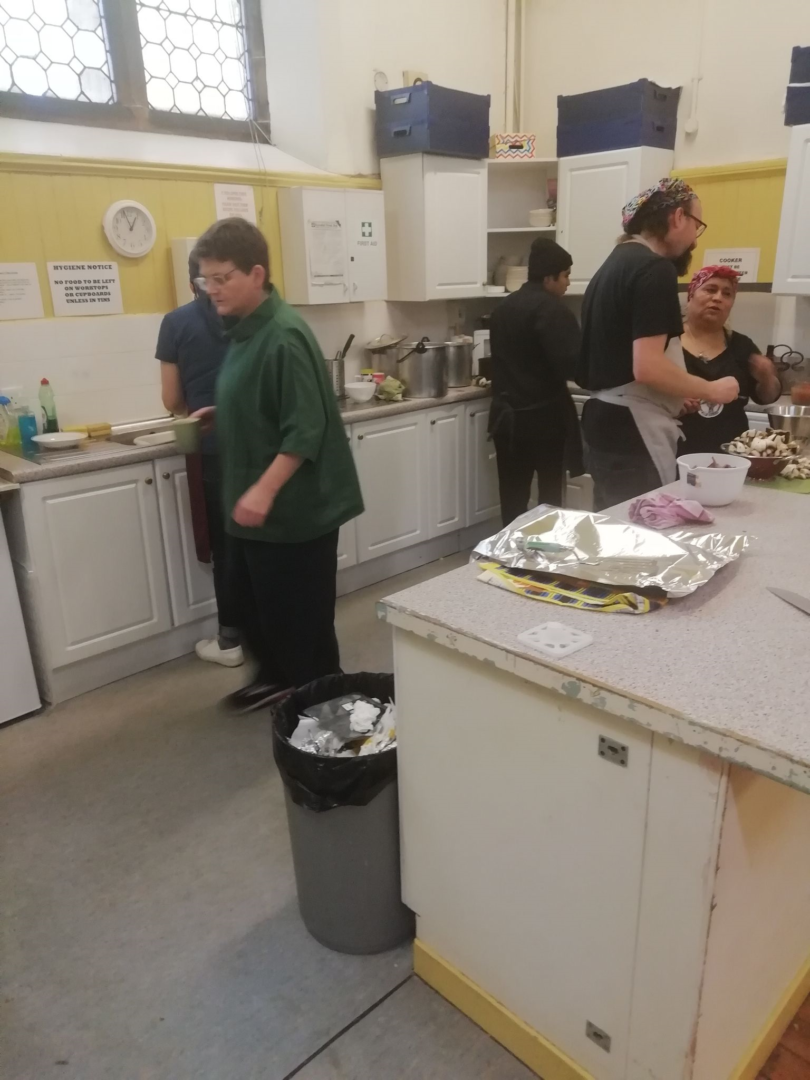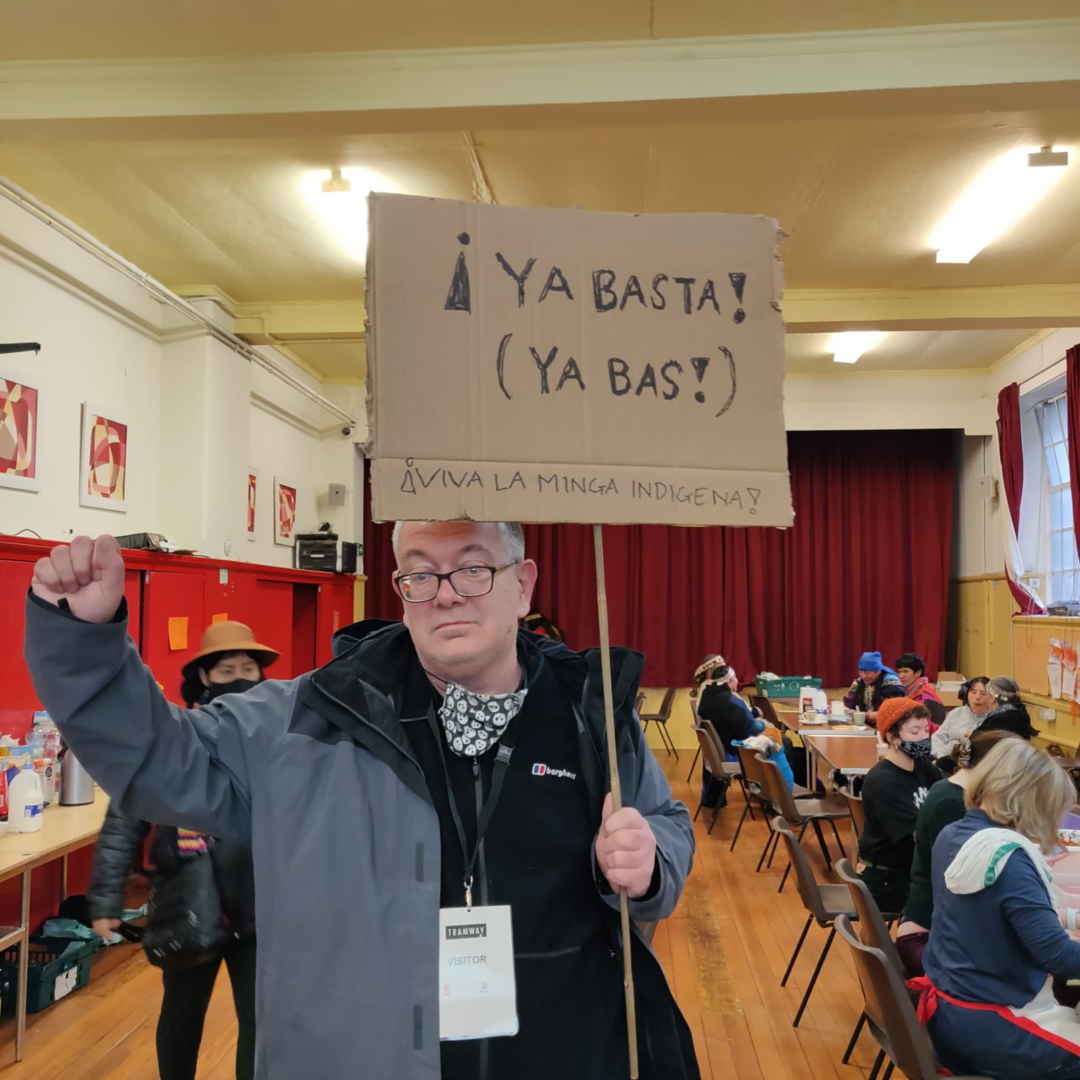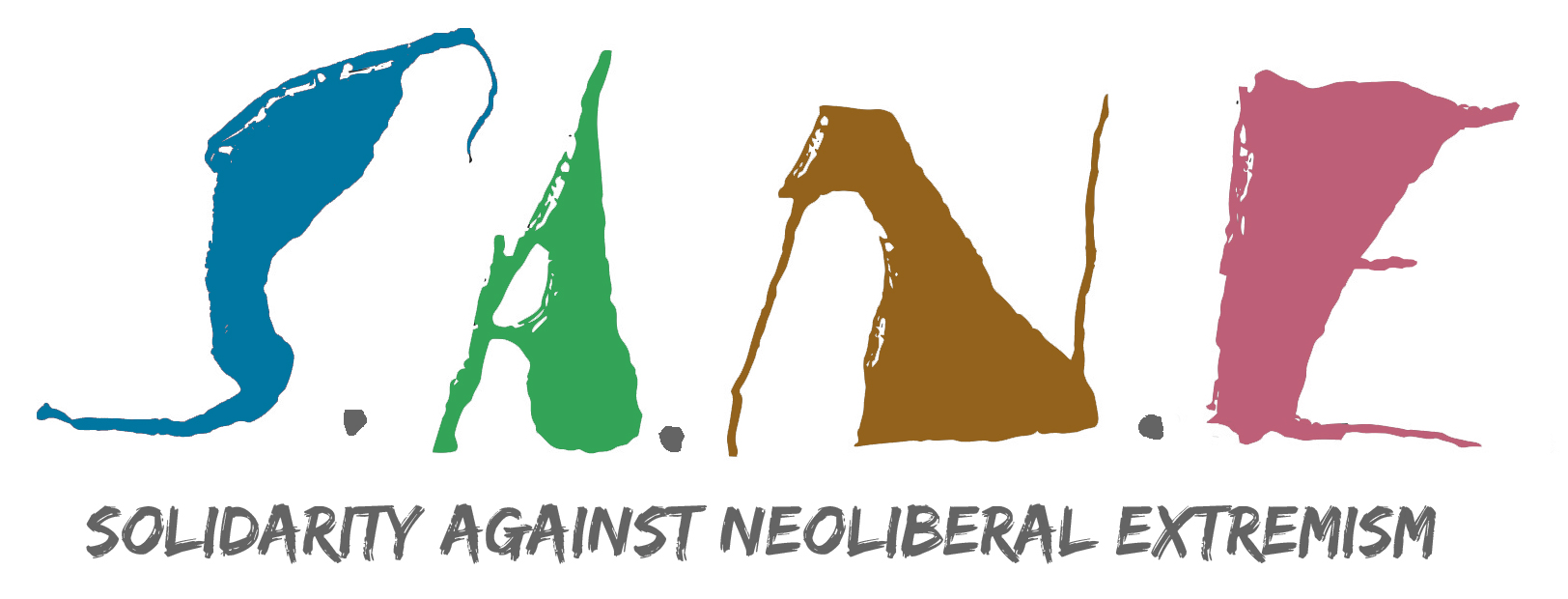By David Carr
Minga n (Quechua). A voluntary agreement between communities to come together to achieve a common purpose, e.g. to build a rope bridge, a road, a government.
COP26 fever was upon Glasgow. The ‘Dear Green Place’ was buzzing with the excitement of holding a conference that is key to the very survival of humanity. All eyes were on Scotland.
There were – teething problems. Unions rightly seized the opportunity to leverage their fight for workers rights. THis was precisely the moment to hold an effective strike. A strike of refuse workers brought fears of rat infestations throughout the city – the truth being that the city was already manky due to years of underfunded public services and council mismanagement. A planned strike by the RMT held the threat of transport chaos until the privatised train company Abellio blinked first and at the last minute, showing by example that workers can still have genuine power if they organise together. Half the city was closed off to traffic, and even walkers and cyclists as a ring of steel rose up around the UN-controlled Scottish Event’s Campus, to the great inconvenience and disgruntlement of many.
And then they descended. All the world leaders. The greenwashing corporations, the superannuated NGOs, the private jets flying empty from Glasgow to park twenty miles away at Prestwick. Biden’s twenty vehicle motorcade wheeching him daily to Glasgow from where he was staying in Edinburgh. The thuggish Metropolitan Police, up en masse to discourage, with menaces, any ‘disruption.’
The only people not invited to this party of parties, were those to whom it mattered most. The people whose life, communities, whose very existence is already being savagely hit by climate catastrophe. The dispossessed, the marginalised, the indigenous peoples of the global south.
It was a quiet weekend, the calm before the madness and I was idly contemplating the programme of fringe events and protests that were upcoming over the two weeks of the conference. My daughter messaged me with a screenshot from a local Facebook community group calling for help to form a volunteer group to feed La Minga Indigena – a party of elders from indigenous communities across the southern Americas.
I responded to the call. Things mushroomed from there, as all the contemporary tools of organisation were brought into play – Facebook pages set up, WhatsApp groups populated. And so it was that on a dreich, rain-lashed Sunday I found myself trotting off to a community space – a former bowling green – where, we were told, there was some kitchen equipment to be picked up and transported to a nearby church.
The community response was instant and overwhelming. A small crowd assembled in Kenmure Street, site of the world renowned action when residents successfully faced down the Home Office ‘hostile environment’ immigration van when they tried to snatch their neighbours, two valued members of the community. Good thing too. It wasnae just a few pots and pans. In no time flat we were hoiking sacks of rice, oats, spuds, huge gas bottles from their storage container to the church where they were needed.
The kitchen and canteen were soon set up. Only one snag. We had rice, we had spuds, we had oats – but not much else. Certainly not enough for the task in hand – feeding ninety guests needing three square meals a day for two weeks with zero money. But that bridge could be crossed when it had to be. We had a whole fourteen hours before they were due to arrive.
Fast forward to the next morning. We hit the phones. Cold calling is way outwith my comfort zone. But whereas in Edinburgh, the saying goes ‘You’ll have had your tea, then’ in Glasgow we say ‘You’ll be wanting your tea’. Needs must, and I got dialing.
And it was precisely at that point that the miracle of community cohesion kicked in. I called a local Asian supermarket and explained the score. Yes – of course we could have some vegetables. Then another. Six huge sacks of chapati flour and two drums of oil. And it kept on coming. Bags were flying through the door until by the time our amazing Chilean chef – the redoubtable Rosanna – arrived, there was enough for lunch. In no time flat.
But first it was time for speeches and welcomes. Rosanna spoke of her work in Chile feeding impoverished older people with – sounds familiar – no budget. The indigenous elders started to arrive in their glorious, traditional dress and there were speeches that moved to tears about the coming together of people to treasure and protect the earth and the importance of connection between the human spirit and nature.
Then on with the work. The unspoken laws of spontaneous self-organisation kicked in. If there was a job that needed done, then it was simply done. Vegetables were chopped, dishes washed, more phone calls made, folk sent on errands for food, more food as the aromas of improvised food filled the church hall.

Communities have their own networks of support. Voluntary cooperation between enterprises which do not exist in vacuums but assist one another in informal systems of mutual aid. Over the next two days of blagging, we tapped into existing food sharing programmes, interfaith communities, solidarity organisations all with experiences of how and from whom free food could be blagged. And the WhatsApp groups pinged and pinged with individual donations of vegetables and cash. You can always rely on the kindness of strangers.
Then there was the succes fou of support from a local Member of the Scottish Parliament and cash-and-carry millionaire who cannot be named – but suffice to say he’s pretty high up. And even an offer from an insider source in Greta Thunberg’s secret Fridays For Future base to pick up the tab.
I really didn’t expect it to be so easy. Manically fraught. But easy. In flowed the food from the adjacent gurdwara, from a nearby Islamic foundation. Leads were shared on which supermarkets would donate past sell by date food. Our cup ranneth over.
However, I am, of course, painting a rose-tinted picture. This was The COP Effect. While there is no doubt that the donations flowed easily, life isn’t always like that. Our short term miracle went from zero to enough to feed ninety people for two weeks in two days flat, from a standing start, by volunteers with zero experience and acting on their own wits. At an individual level, many people in Glasgow as elsewhere are struggling with the hand-to-mouth stress of accessing foodbanks and community canteens. For many, the suffering and degradation of life in an insanely cruel Universal Credit system or struggling to survive on an asylum seeker’s pittance is real.
However, It cannot be denied that mutual aid is something that strong communities do well. This – call it – food communism goes on quietly, out of sight and under the radar – able to be brought to bear when needs arise.
The elders of La Minga Indigena are in Glasgow to share their wisdom. The wisdom that I have learned from them is that communities can spontaneously and voluntarily come together for a shared purpose.
In Glasgow, we learned by example. We formed a minga to feed the minga.



Crying tears of joy. Thank you for caring and doing. Thank you
Beautiful. The real thing. “One Scotland, many cultures.” Scots internationalism.